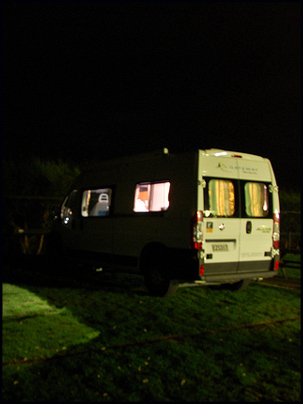
Historically Venice, California, has been the place where new societal mutations showed up early, and the place uniquely prepared and equipped to deal with them. Whether this is still true remains to be seen.
Last month, Peggy Lee Kennedy wrote in the Free Venice Beachhead of a federal civil rights lawsuit filed in November, in which the City of Los Angeles is charged with violating the Americans With Disabilities Act, as well as several Constitutional amendments. Kennedy says,
The plaintiffs in this civil rights lawsuit are part of the Venice community. Most are people who have lived in Venice for many years and used to be housed here. They get all their services here, they have been involved in the St. Joseph surveys, they are on housing lists, and they have given their personal information for getting in the ‘Streets to Homes’ program — if it ever happens.
They are vehicle dwellers, and many consider themselves fully entitled stakeholders in Venice. Some of them say things like, “I’m houseless, not homeless.” But many of the residents definitely consider these gypsies as undesirable riff-raff, who take up valuable parking space and cause unhealthful conditions for everybody.
Because of its attractive beach location and freewheeling culture, Venice has always contained a large number of people experiencing homelessness. For decades, a subset of that population has been a particular burr under the saddle of the housed residents. The irritants are the people who live in vehicles, mostly RVs, but also cars, vans, and campers. “Rubber Tramps of Venice” describes some of the colorful vehicles that were around in the early 80s, and a film that was made 10 years ago featuring the long-term Venice vehicle dwellers considered homeless by the housed residents.
In 2005, public outrage was inflamed by the actions of William Sadowski, who lived in his car in Venice. As described by two staff writers for the LA Times, Hector Becerra and Jennifer Oldham, Sadowski hijacked a patrol car belonging to a member of the airport police force. Trying to regain control of his vehicle, the officer was dragged and battered, and ended up dead. This did not enhance the reputation of the locals who lived in wheeled homes.
The Rose Avenue Neighborhood Watch added the phrase Vigilante Strike Force to its name, and residents took an angry and active part in tagging vehicles for towing. One resident claimed to have identified 250 RVs being lived in illegally. There was an uproar when one local organization accused another of distributing flyers all over Greater Los Angeles, supposedly inviting other rubber tramps to relocate to the streets of Venice. This turned out to be untrue, but it further eroded whatever little tolerance the homeowners and renters might have retained.
One resident got so upset she couldn’t even make logical sense, and wrote to a newsletter that A.) A lot of the vehicles people lived in were not even roadworthy, but were incapable of being driven away, and B.) If the police wanted to serve a warrant, vehicle dwellers could just escape by driving away. Various schemes for parking permits were the subject of many meetings and millions of words of debate, and indeed, many local residents defended the right of people to live in vehicles, noting that many such unfortunates are women, children, and veterans.
The Los Angeles police formed what Kennedy calls the Homeless Removal Task Force, especially to run the rubber tramps out of town. Apparently, they wear black SWAT outfits (a bold fashion statement at any beach) and dedicate themselves to making life miserable for RV owners in every way, from petty verbal harassment to towing.
But many of the vehicle dwellers are officially disabled, and thus exempt from the parking restrictions that were purposely created to banish homes on wheels. The police should know this, but they go ahead and do it anyway. Kennedy says that a jeering, cheering crowd has actually shown up in the past to applaud when some disabled person was arrested and his vehicle was towed away.
In another issue of the Free Venice Beachhead, Rune Girschfeld, self-described as a “mobile-homed Venice resident,” recounted her experience with a sweep, one of the aggressive enforcement tactics adopted by the police and practiced in the middle of the night on people they perceive as needing to be hassled, handcuffed, and cleaned from the streets like garbage. She said,
Sleeping citizens are ordered out of their vehicles. They are put off-balance with rapid-fire questions. They are lied to and told they must answer questions; that the police ‘know’ they are hiding something; that they can forcefully open doors if not opened voluntarily and that they can take away their children…
Girschfeld goes on to say,
Personally, I work full-time and still cannot afford to decriminalize myself. I do not understand where the idea came from that someone who is living in a vehicle is ‘taking advantage,’ as though they had chosen to live in third-world America…
America is full of people experiencing economic homelessness. We’re talking about working full-time, and still being unable to rent the cheapest housing. And this is just tenancy that they can’t afford. It’s not even anywhere near the crazy dream of owning a place. The more you think about it, the more obvious it becomes: When an American working a 40-hour week cannot afford basic housing, something is really broken in the entire system. Suggestion: Consider the Universal Living Wage, which is designed to end homelessness for over 1,000,000 minimum-wage workers, and prevent economic homelessness for all minimum-wage workers in America.
Reactions?
Source: “Lawsuit filed to protect civil rights of RV Residents,” FreeVeniceBeachhead, 12/10
Source: “LAX Police Officer Killed as Stolen Patrol Car Drags Him,” LA Times, 04/30/05
Source: “Rosendahl’s ‘Carrot and Stick’ means a knock on the door at 5 am,” Free Venice BeachHead, 10/10
Image by Colin Bowern, used under its Creative Commons license.
1
